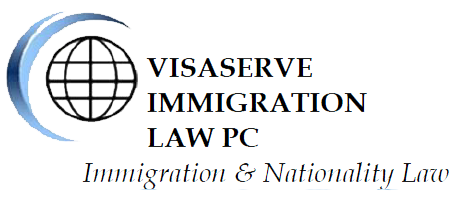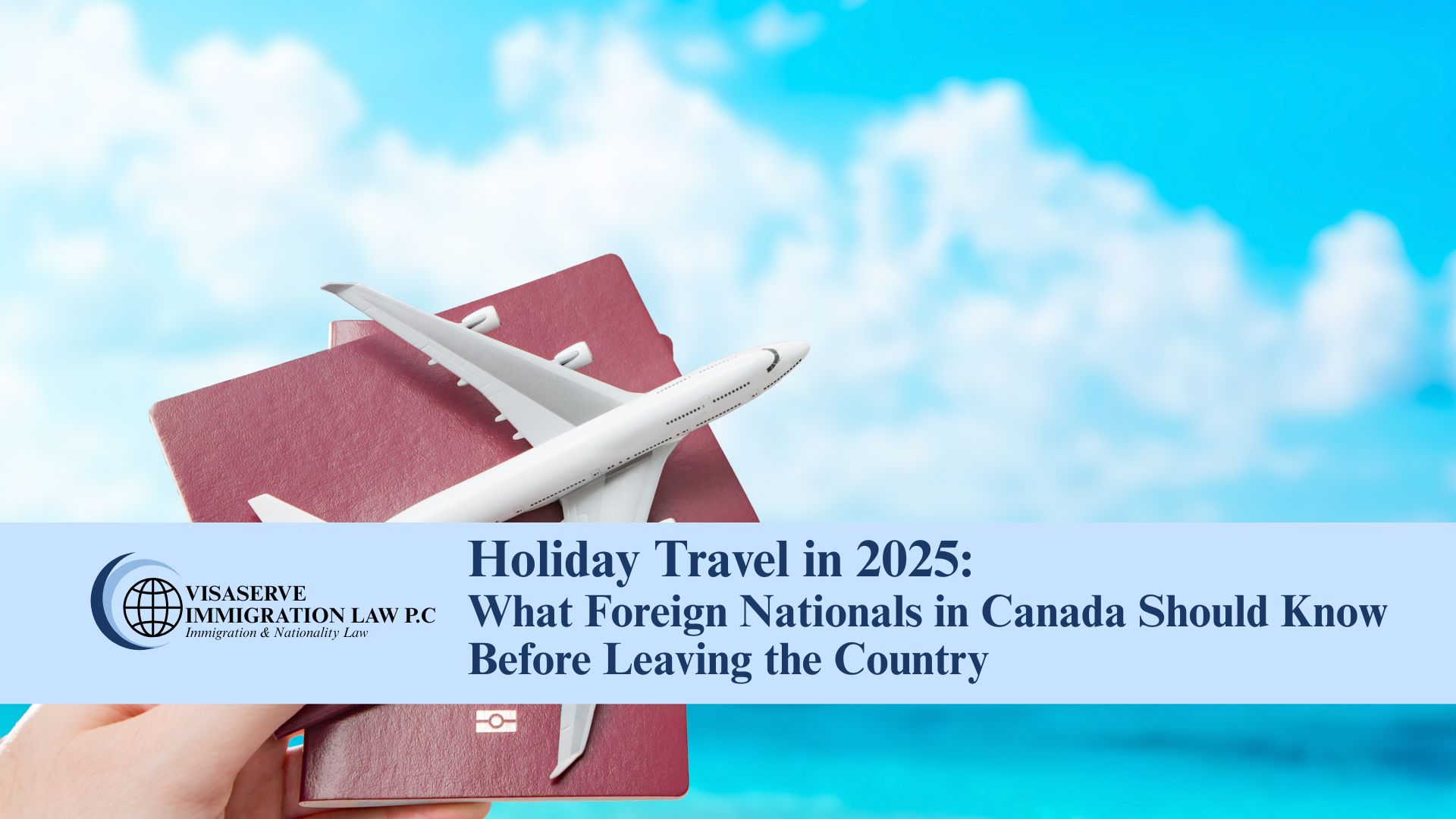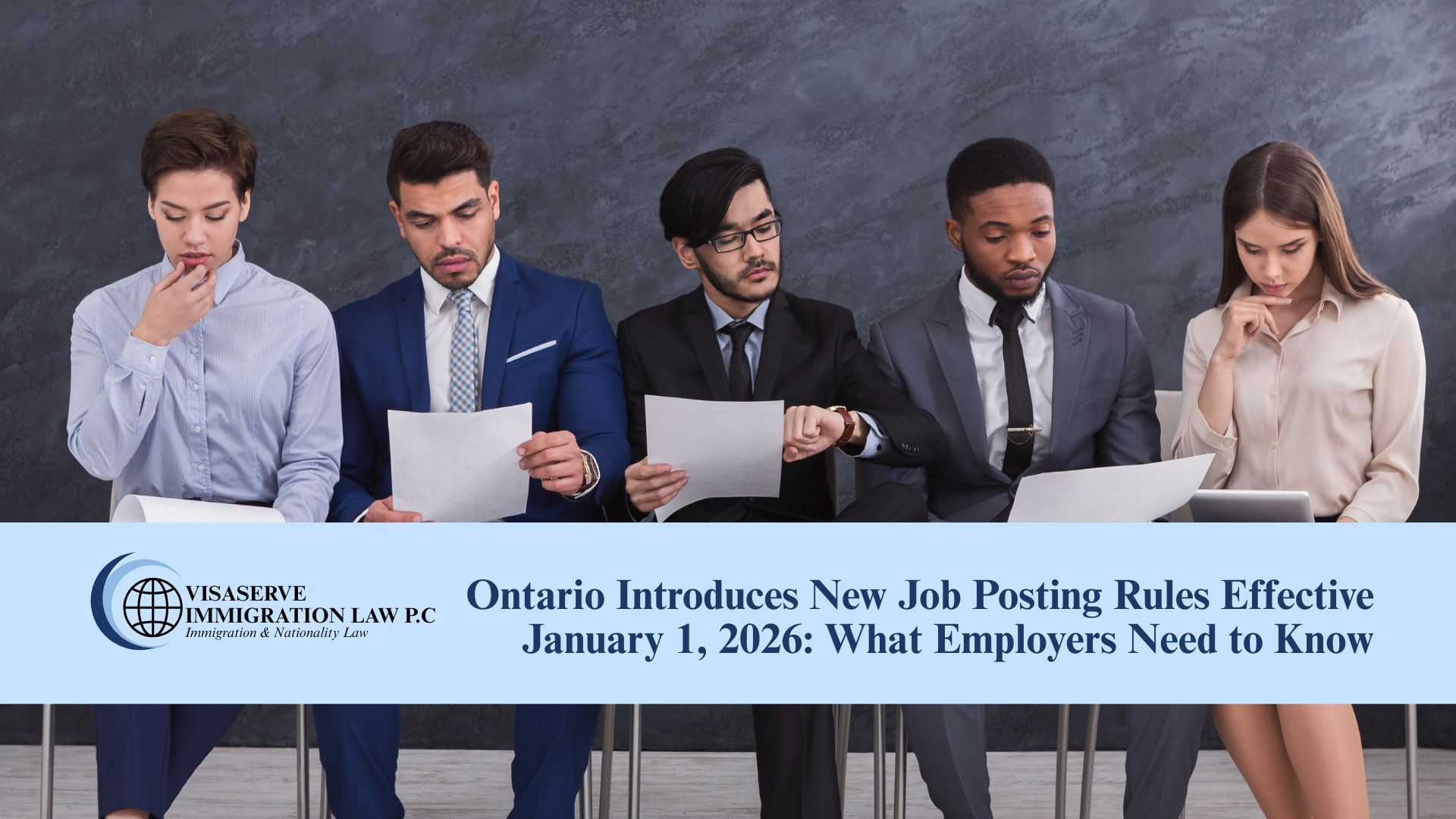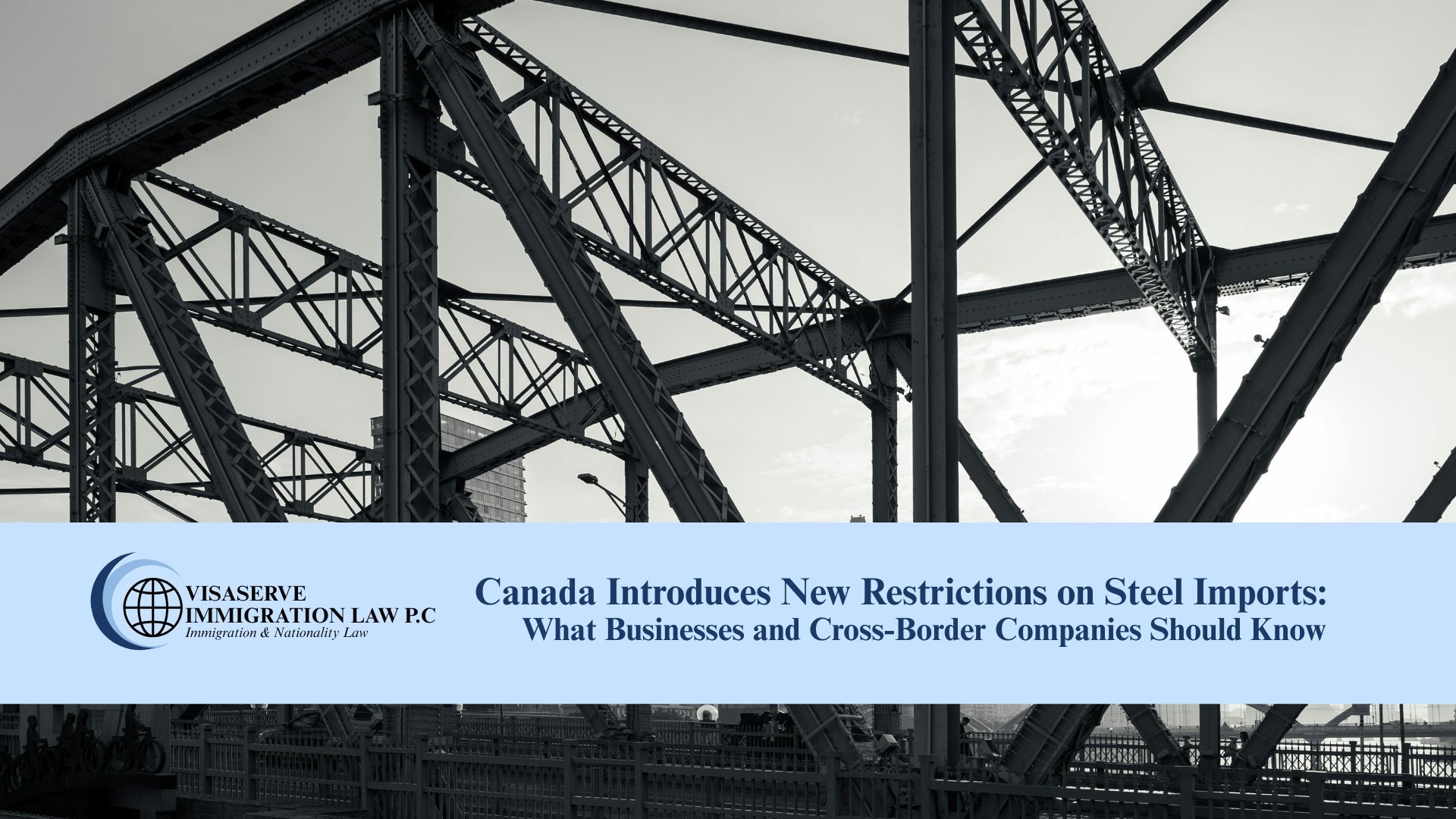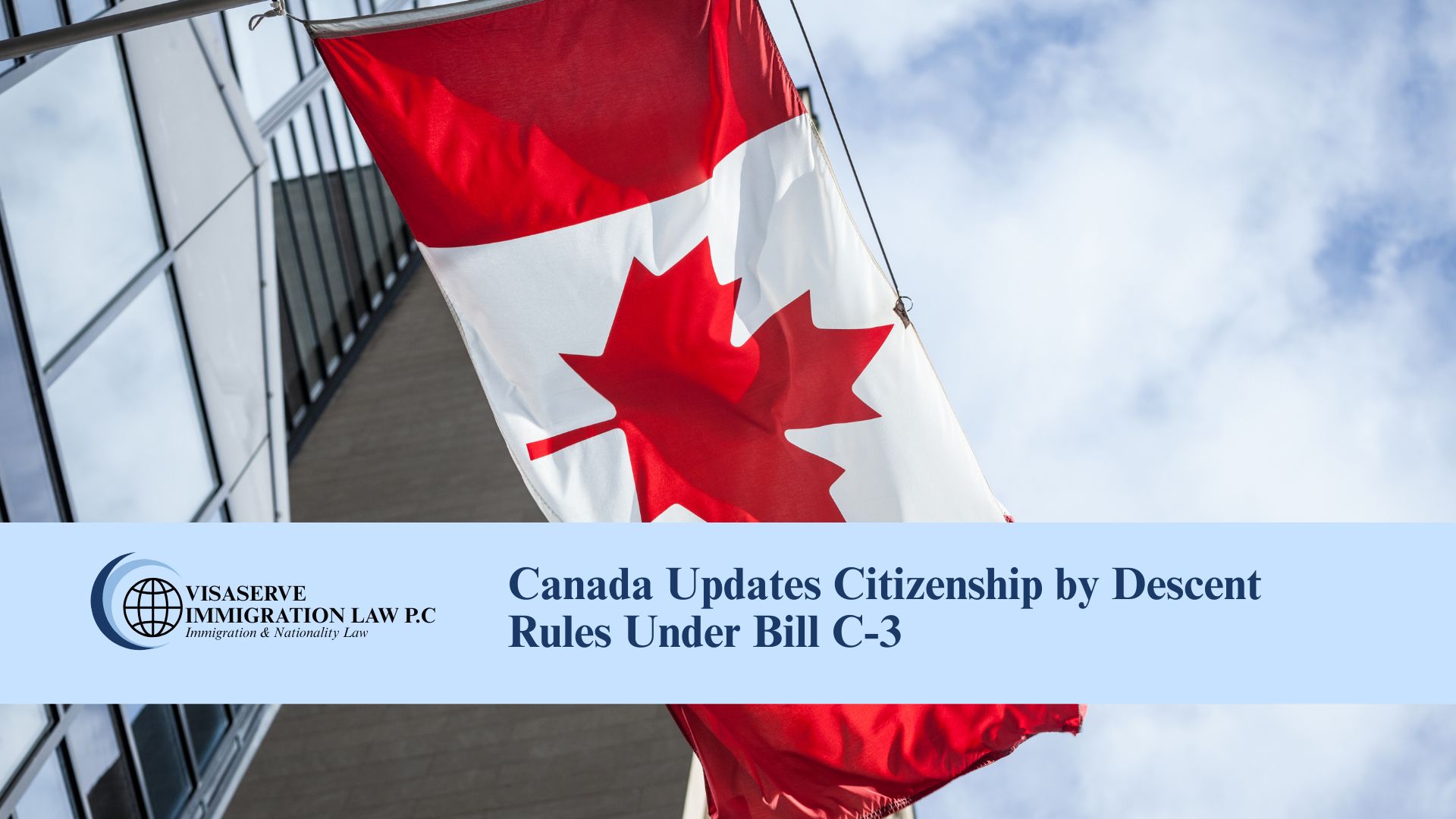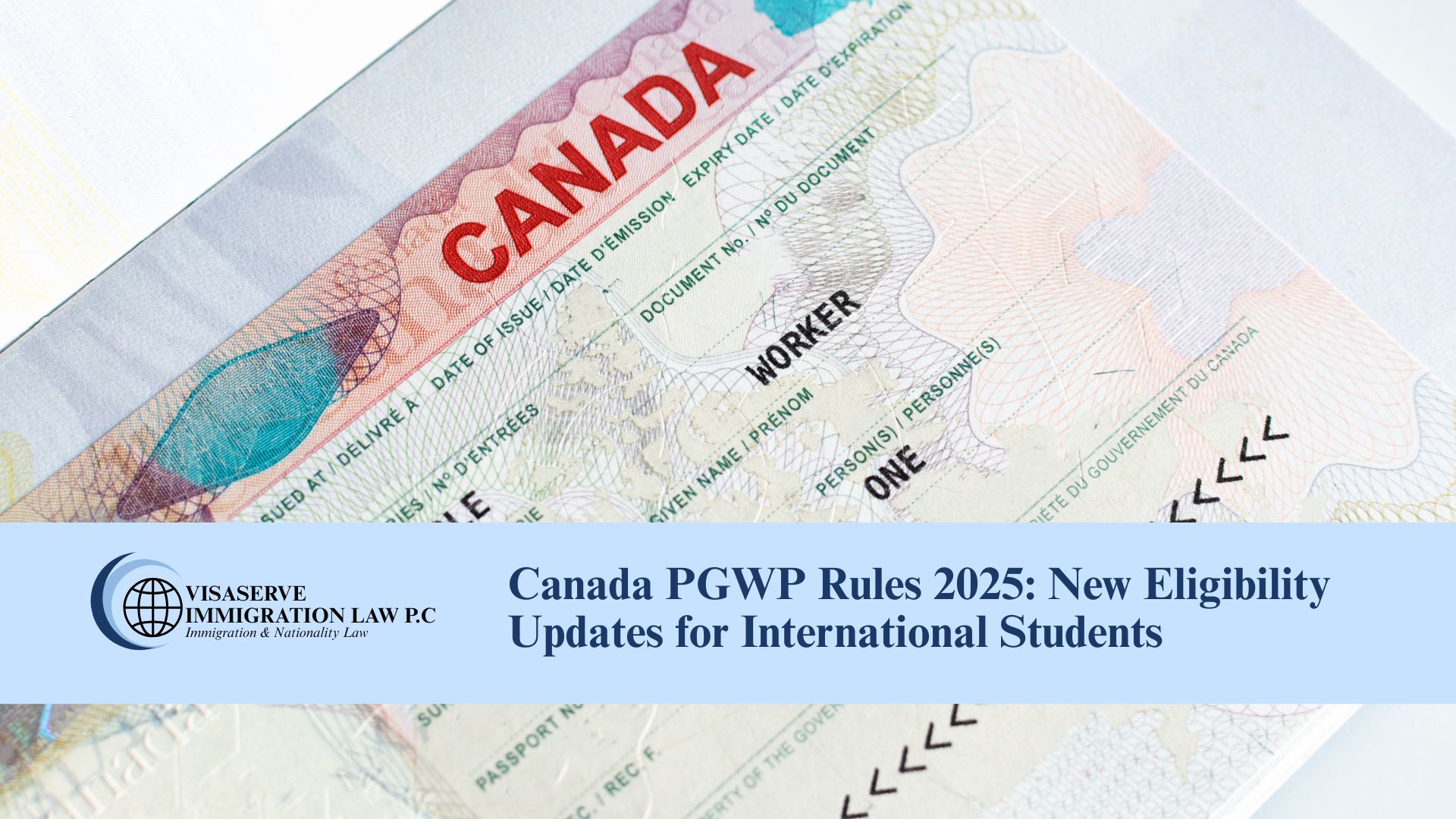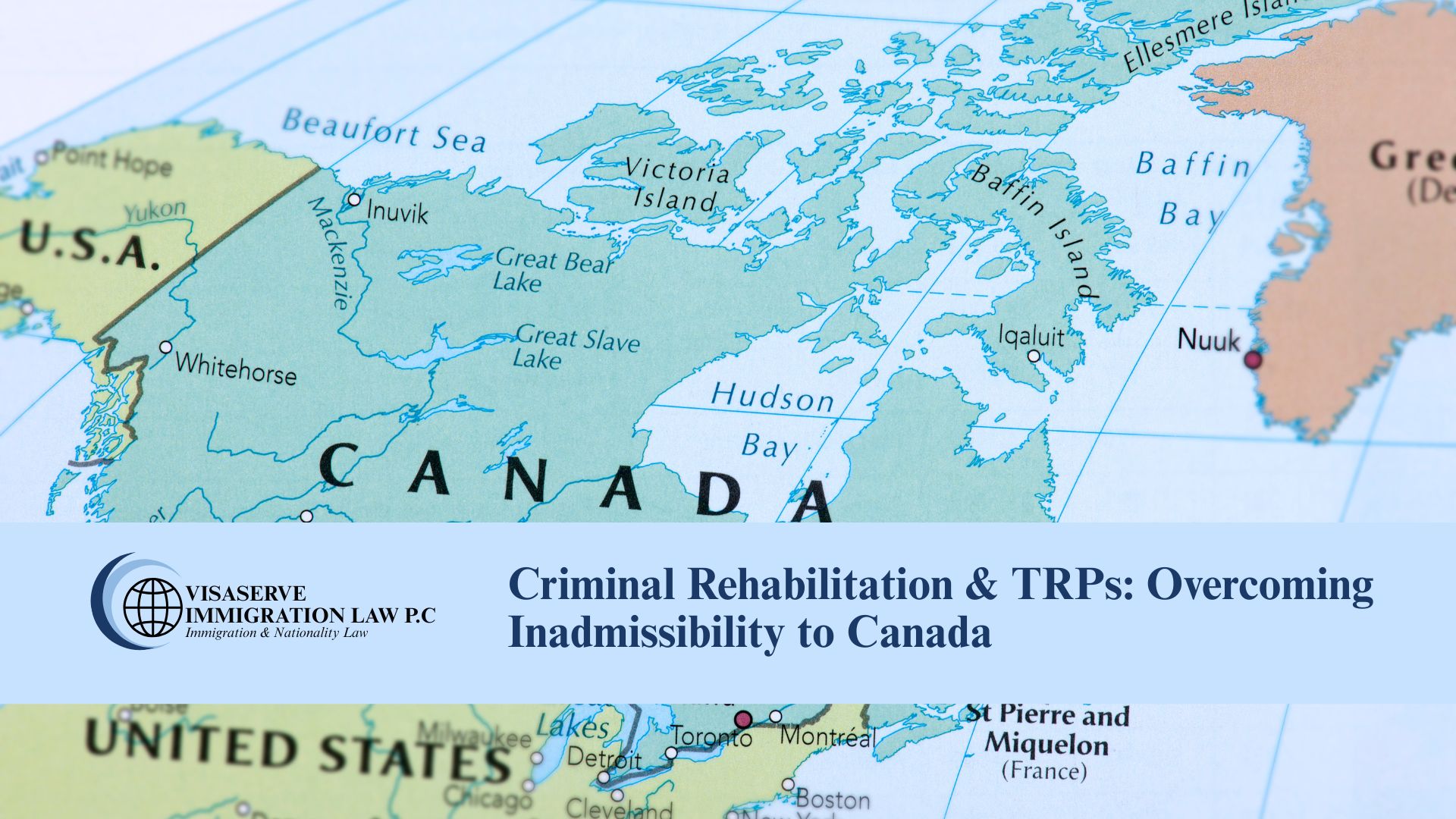The holiday season is a busy time for international travel, and for foreign nationals living, working, or studying in Canada, planning ahead is especially important. Changes in entry rules, varying processing times, and airline document checks mean that travelers must ensure they have the proper documents to return to Canada without delays.
Whether you hold a work permit, study permit, visitor status, permanent residence, or you have a pending application, here are the key steps to review before leaving Canada.
1. Check Passport Validity
Your passport must be valid for the entire duration of your stay in Canada. Many countries also require at least six months of validity beyond the date you plan to return.
If your passport is expiring soon:
- Renew it before traveling, if possible.
- If you renew abroad, ensure processing times will not disrupt your return.
2. Confirm You Have the Required Entry Documents
Your right to re-enter Canada depends on your status:
Temporary Residents (Workers, Students, Visitors)
You generally need:
- A valid passport
- A valid Canadian visa (TRV) OR a valid eTA (if visa-exempt)
- A valid work permit or study permit, if applicable
Important:
A work permit or study permit alone does not allow you to re-enter Canada. Your TRV or eTA must also be valid.
Permanent Residents
You must have:
- A valid PR card, or
- A Permanent Resident Travel Document (PRTD) if your PR card expired and you are outside Canada
If your PR card is expiring soon, renew it before traveling if time allows.
3. Work Permit & Study Permit Holders: Check Your Status Carefully
If you are traveling during the holiday season:
Work Permit Holders
Bring:
- Your valid work permit
- Recent pay statements
- Employment verification letter
- Valid TRV or eTA
If you changed employers, make sure your new work authorization is already approved.
Study Permit Holders
Carry:
- Your valid study permit
- Proof of enrollment for the next academic term
- Recent tuition payment receipt
- Updated transcripts (if available)
- Valid TRV or eTA
Students must show they are actively pursuing their studies.
4. What If Your TRV Has Expired?
If you need a new Temporary Resident Visa:
- Apply before leaving Canada whenever possible
- TRV processing times fluctuate by visa office
- During holiday season, expect longer processing due to higher demand
If you wait to apply abroad, delays could impact your return date.
5. Special Guidance for Applicants With Pending PR or Temporary Residence Applications
If you have an application in process (Express Entry, PNP, work permit, study permit, spousal sponsorship, etc.):
- Traveling does not cancel your application
- But IRCC may send requests (biometrics, medical exams, additional documents) while you are abroad
- Missing a deadline could cause refusal
Check your IRCC portal regularly during travel.
6. Travel to the United States: Automatic Visa Revalidation Does Not Apply in Canada
Unlike the U.S. system, Canada does not offer automatic revalidation of expired visas.
If your TRV is expired, leaving Canada — even for a short trip — means you must have a new TRV issued before returning.
There is no exception for quick trips to the U.S.
7. Permanent Residents: Be Mindful of Residency Obligation
Canada requires PRs to be physically present for 730 days within a 5-year period.
Travel often during the holidays?
- Keep track of days spent outside Canada
- Extensive travel could impact future PR card renewals or citizenship eligibility
8. Check Airline Requirements Before Traveling
Airlines will review your:
- Passport
- TRV or eTA
- Work permit, study permit, or PR card
Many travelers are denied boarding due to an expired TRV or missing documents. Confirm everything is valid before heading to the airport.
9. Returning to Canada: What to Expect
Canada Border Services Agency (CBSA) may ask questions about:
- Your employment or school enrollment
- Your purpose of travel
- Your ties to Canada
- Financial support (for visitors and students)
- Length of your stay abroad
Have supporting documents accessible in your carry-on bag.
Conclusion
Holiday travel from Canada requires preparation, especially for temporary residents and those with pending immigration applications. Reviewing your documents ahead of time helps you avoid unnecessary delays and ensures a smoother return to Canada.
If you have questions about travel risks or your specific immigration status, NPZ Law Group can provide detailed guidance to help you plan with confidence.
FAQs — International Travel from Canada (2025)
1. Do I need both a work/study permit and a TRV/eTA to re-enter Canada?
Yes. Your permit alone is not enough for re-entry. You must also have a valid TRV or eTA depending on your nationality.
2. Can I travel if my PR card has expired?
Yes, but only if you apply for and receive a Permanent Resident Travel Document (PRTD) while abroad. Without it, airlines cannot board you.
3. What if IRCC sends me a document request while I’m abroad?
Respond by the deadline. Missing the deadline can lead to application refusal, so check your online account frequently.
4. Can I return to Canada if my TRV expires while I am outside the country?
No. You must wait for a new TRV to be issued before returning.
5. Does Canada have an automatic revalidation rule like the U.S.?
No. Canada does not allow re-entry with an expired visa under any circumstance.
Contact Information
If you or your family members have any questions about how immigration and nationality laws in the Canada may affect you, or if you want to access additional information about immigration and nationality laws You can reach us by emailing info@visaserve.ca or by calling us at +1 905-203-2266 .We also invite you to visit our website at www.visaserve.ca/contact for more information.
